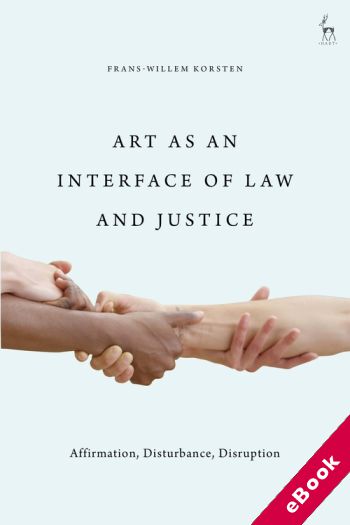
The device(s) you use to access the eBook content must be authorized with an Adobe ID before you download the product otherwise it will fail to register correctly.
For further information see https://www.wildy.com/ebook-formats
Once the order is confirmed an automated e-mail will be sent to you to allow you to download the eBook.
All eBooks are supplied firm sale and cannot be returned. If you believe there is a fault with your eBook then contact us on ebooks@wildy.com and we will help in resolving the issue. This does not affect your statutory rights.
This book looks at the way in which the 'call for justice' is portrayed through art and presents a wide range of texts from film to theatre to essays and novels to interrogate the law.
'Calls for justice' may have their positive connotations, but throughout history most have caused annoyance. Art is very well suited to deal with such annoyance, or to provoke it. This study shows how art operates as an interface, here, between two spheres: the larger realm of justice and the more specific system of law. This interface has a double potential. It can make law and justice affirm or productively disturb one another.
Approaching issues of injustice that are felt globally, eight chapters focus on original works of art not dealt with before, including Milo Rau's The Congo Tribunal, Elfriede Jelinek's Ulrike Maria Stuart, Valeria Luiselli's Tell Me How It Ends and Nicolas Winding Refn's Only God Forgives. They demonstrate how through art's interface, impasses are addressed, new laws are made imaginable, the span of systems of laws is explored, and the differences in what people consider to be just are brought to light.
The book considers the improvement of law and justice to be a global struggle and, whilst the issues dealt with are culture-specific, it argues that the logics introduced are applicable everywhere.